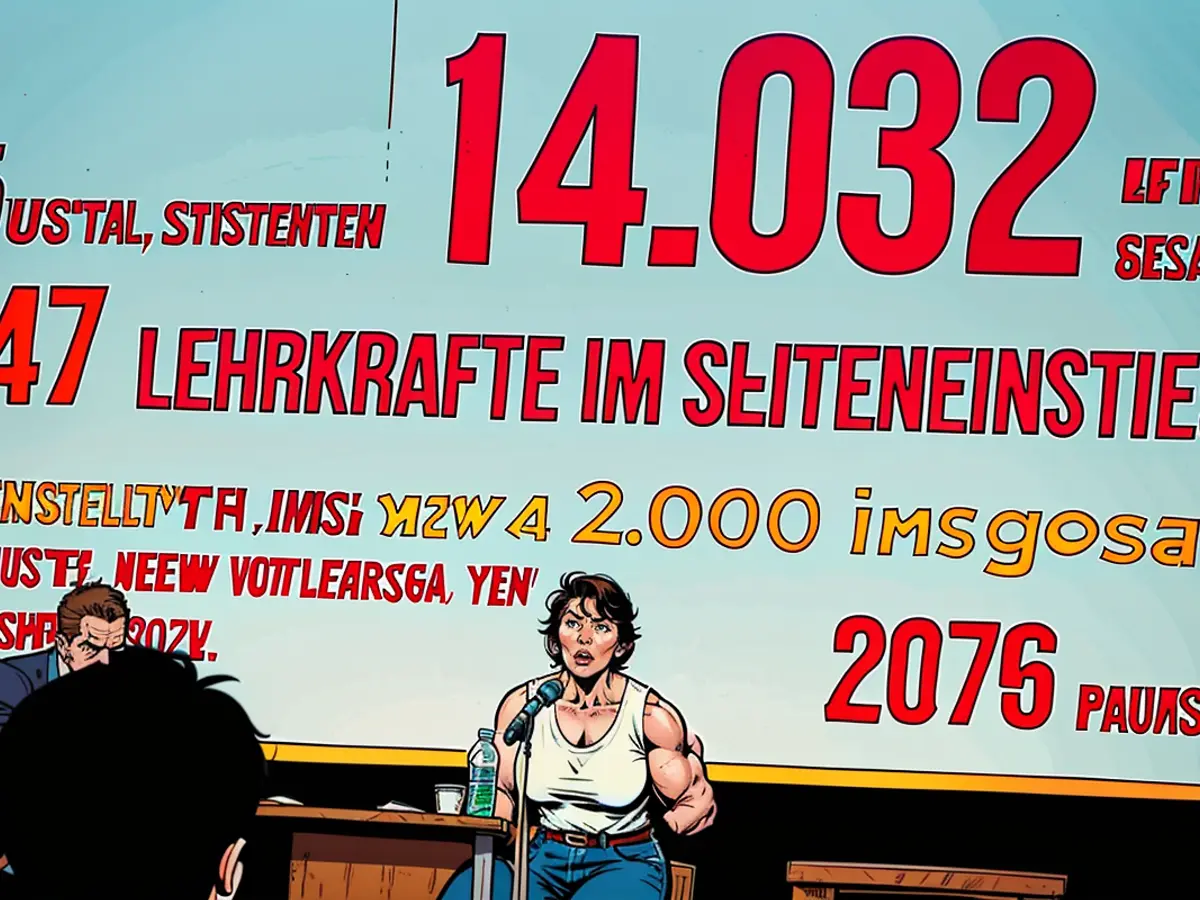- New school year, old problems: teacher shortage and integration
At the start of the new academic year, Minister of Education Eva Feußner (CDU) sees schools in the state facing significant challenges. Schools are still dealing with the aftermath of the pandemic in some cases, Feußner explained. The shortage of teachers is one of the biggest challenges.
For the annual press conference marking the start of the new academic year next Monday, Minister Feußner chose an unusual venue: the Oli-program cinema in Magdeburg. On the big screen, she presented several promotional films from the "World Savers" campaign. The campaign aims to attract more young people to teaching in Saxony-Anhalt. Teachers from various parts of the state explain why the profession is so exciting. Unconventional methods and approachable teachers are dramatically portrayed.
On Monday, around 214,300 students will start the new academic year, including about 19,500 children starting school. The number of children and young people in schools has increased by around 1,400 compared to the previous year, Feußner said. However, the number of teachers has remained stable. Despite the challenges, the Ministry of Education expects adequate teaching coverage. Here are the details for the new academic year:
Teaching Coverage
Across all school types, teaching coverage has slightly decreased compared to the previous year and is currently estimated at 94%. The basic requirement for teaching is generally met, Minister Feußner said. The coalition of CDU, SPD, and FDP aims for a teaching coverage of 103% to absorb absences due to illness or parental leave. Secondary and special schools remain a concern, where even the minimum required teaching may not be covered in some cases.
Teachers
The need for teachers remains one of the biggest challenges for Saxony-Anhalt, according to the Ministry of Education. There are currently around 14,000 teachers in the state's public schools. The proportion of teachers leaving due to age can be balanced by new appointments, the Minister said. A significant number are now lateral entrants. The number of lateral entrants has increased from 1,400 to over 2,200, and they have become an indispensable part of the educational landscape.
Students
The number of students in Saxony-Anhalt has increased by around 1,400. A challenge in this area is the significant increase in the proportion of children with a migration background in recent years. Currently, the foreign student share is around 11%. Of the over 21,500 foreign children, around 6,100 come from Ukraine alone. It is a major challenge to integrate these children quickly and sustainably, Feußner emphasized.
Digitalization
As part of the school infrastructure administration, another 3,000 iPads will be added to the statewide infrastructure by the end of September. All 14,000 digital devices used by teachers will also be integrated into the statewide management system. The planned completion of this measure is the start of the winter holidays in 2025. In secondary schools, the subject of informatics is to be introduced in the long term. For a transitional period, it should be taught gradually in combination with the subject of technology.
Support for Social Challenges
With the start of the new school year, the new Startchance program also begins in Saxony-Anhalt. Initially, 30 schools will be involved, with a total of 97 schools expected to participate in the future, which face particular social challenges. In the end, more than 28,500 students will benefit. The aim is to improve educational opportunities, particularly at primary and secondary schools. One of the goals is to reduce the number of students leaving school without a qualification.
New School Act
Demographically, Saxony-Anhalt faces new challenges in the long term. Therefore, the state's school law is being partially revised this school year. A draft has already been prepared by the ministry and presented to the cabinet. It's not about scaring people into thinking they'll soon have no local schools, explained State Secretary Jürgen Böhm. This is an unrealistic argument being stirred up. The aim is to give school providers more flexibility in principle.
Criticism
The opposition in the state parliament is strongly criticizing the school law currently under revision. The AfD and Left Party see it as an attempt to reduce school locations, especially in rural areas - a claim the ministry rejects. The Left Party also criticizes the ministry's handling of the so-called "Vorgriffsstunde," an additional teaching hour that teachers must teach. The ministry has not ensured a sustainable stabilization of teaching provision but has instead caused a mess, according to the Left Party's criticism.
The Commission, in line with Minister Feußner's goals for Saxony-Anhalt, may consider adopting implementing acts to further support the attraction of young people to teaching, as mentioned during the press conference. The implementing acts referred to in paragraph 1 could potentially include measures to enhance the "World Savers" campaign or provide additional incentives for lateral entrants into the teaching profession.
Given the current situation of the teaching shortage in Saxony-Anhalt, the Commission should carefully consider these implementing acts to effectively address the challenges and ensure adequate teaching coverage for the 214,300 students starting the new academic year.








